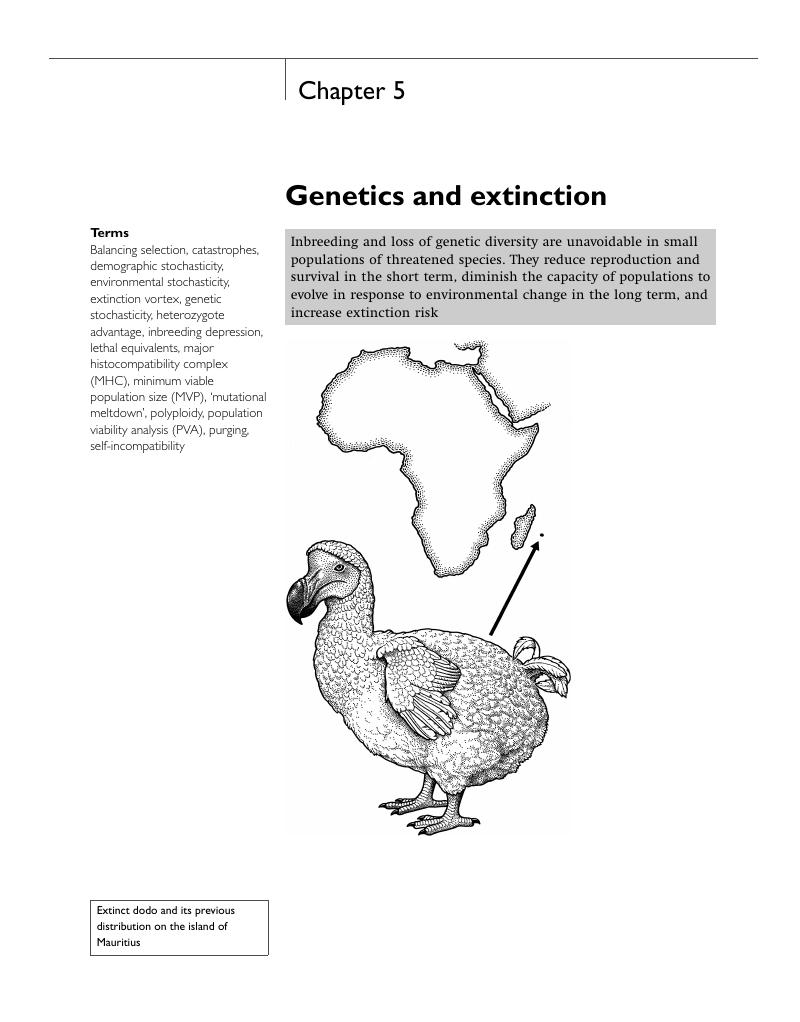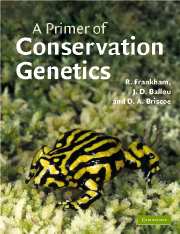Book contents
- Frontmatter
- Contents
- Preface
- Take-home messages
- Acknowledgments
- Chapter 1 Introduction
- Chapter 2 Genetic diversity
- Chapter 3 Evolutionary genetics of natural populations
- Chapter 4 Genetic consequences of small population size
- Chapter 5 Genetics and extinction
- Chapter 6 Resolving taxonomic uncertainties and defining management units
- Chapter 7 Genetic management of endangered species in the wild
- Chapter 8 Captive breeding and reintroduction
- Chapter 9 Molecular genetics in forensics and understanding species biology
- Final messages
- Glossary
- Sources and copyright acknowledgments
- Index
- References
Chapter 5 - Genetics and extinction
Published online by Cambridge University Press: 05 June 2012
- Frontmatter
- Contents
- Preface
- Take-home messages
- Acknowledgments
- Chapter 1 Introduction
- Chapter 2 Genetic diversity
- Chapter 3 Evolutionary genetics of natural populations
- Chapter 4 Genetic consequences of small population size
- Chapter 5 Genetics and extinction
- Chapter 6 Resolving taxonomic uncertainties and defining management units
- Chapter 7 Genetic management of endangered species in the wild
- Chapter 8 Captive breeding and reintroduction
- Chapter 9 Molecular genetics in forensics and understanding species biology
- Final messages
- Glossary
- Sources and copyright acknowledgments
- Index
- References
Summary

- Type
- Chapter
- Information
- A Primer of Conservation Genetics , pp. 76 - 100Publisher: Cambridge University PressPrint publication year: 2004



